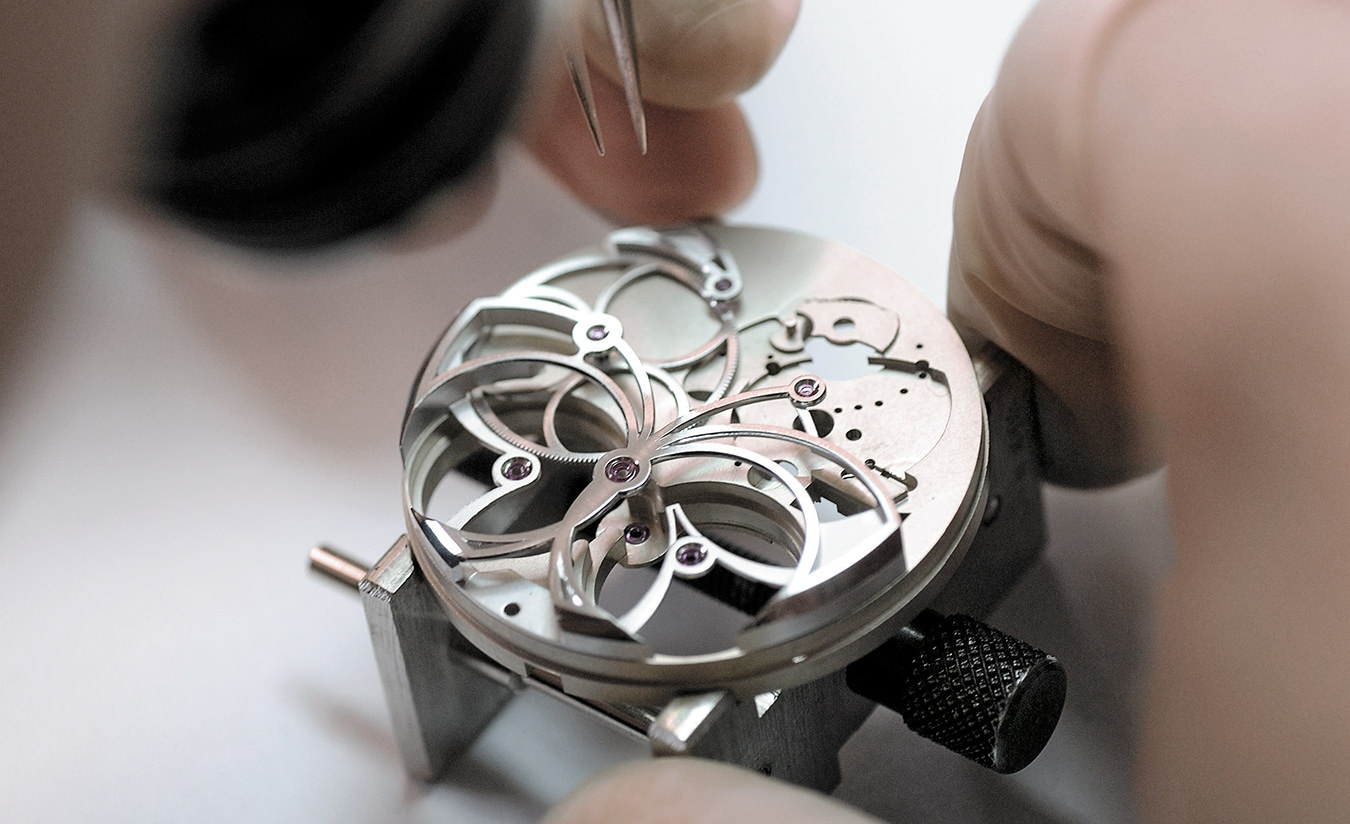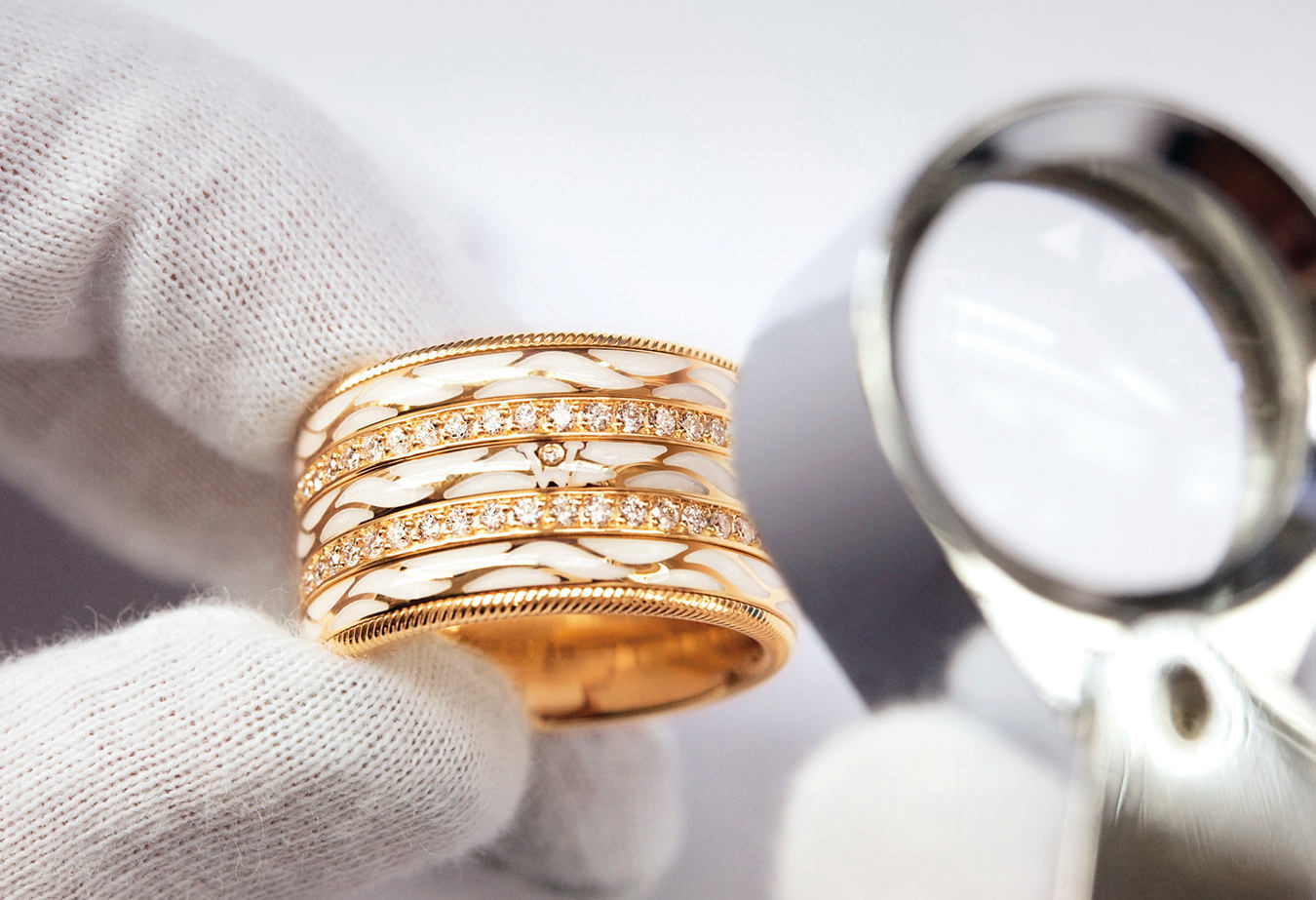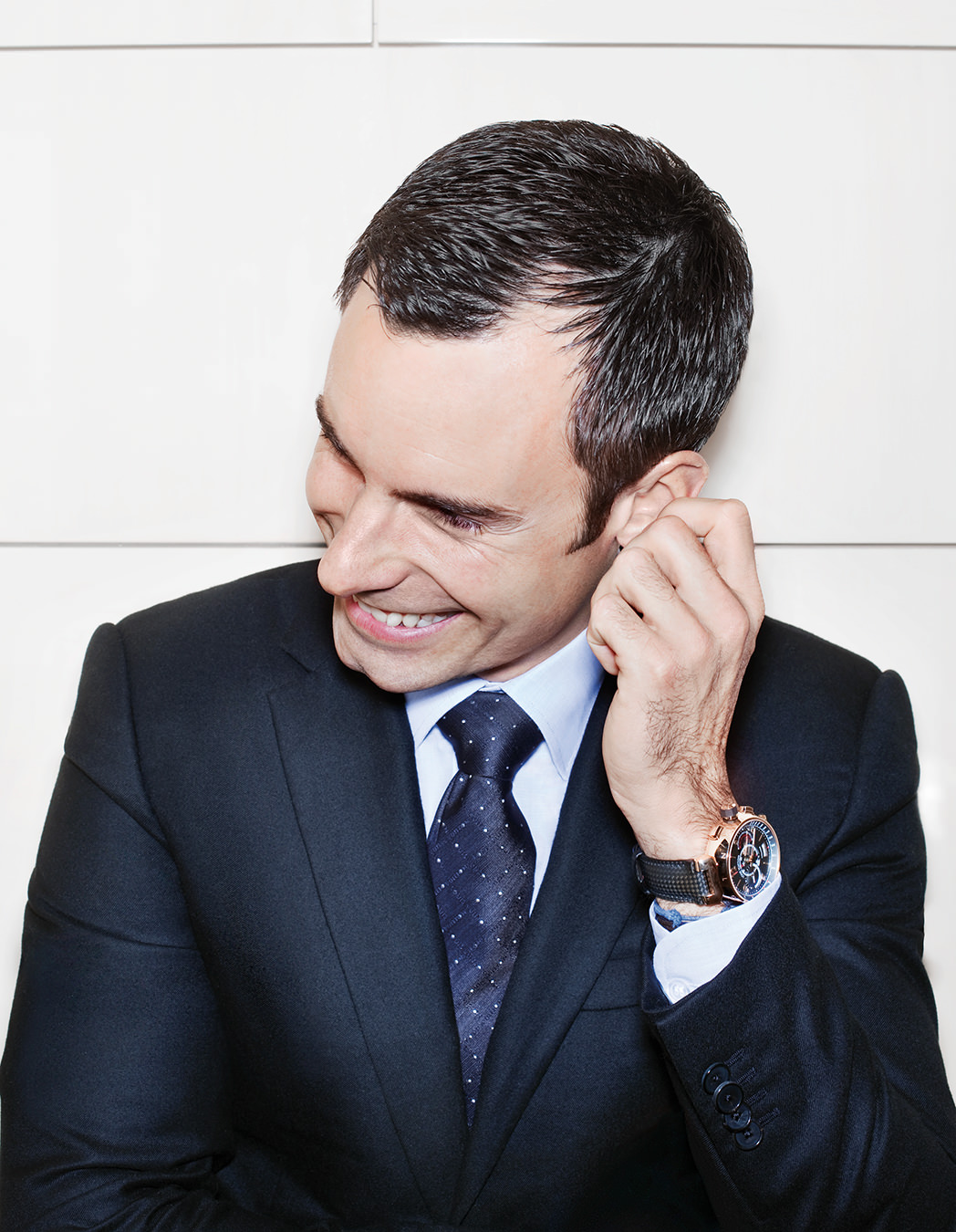-
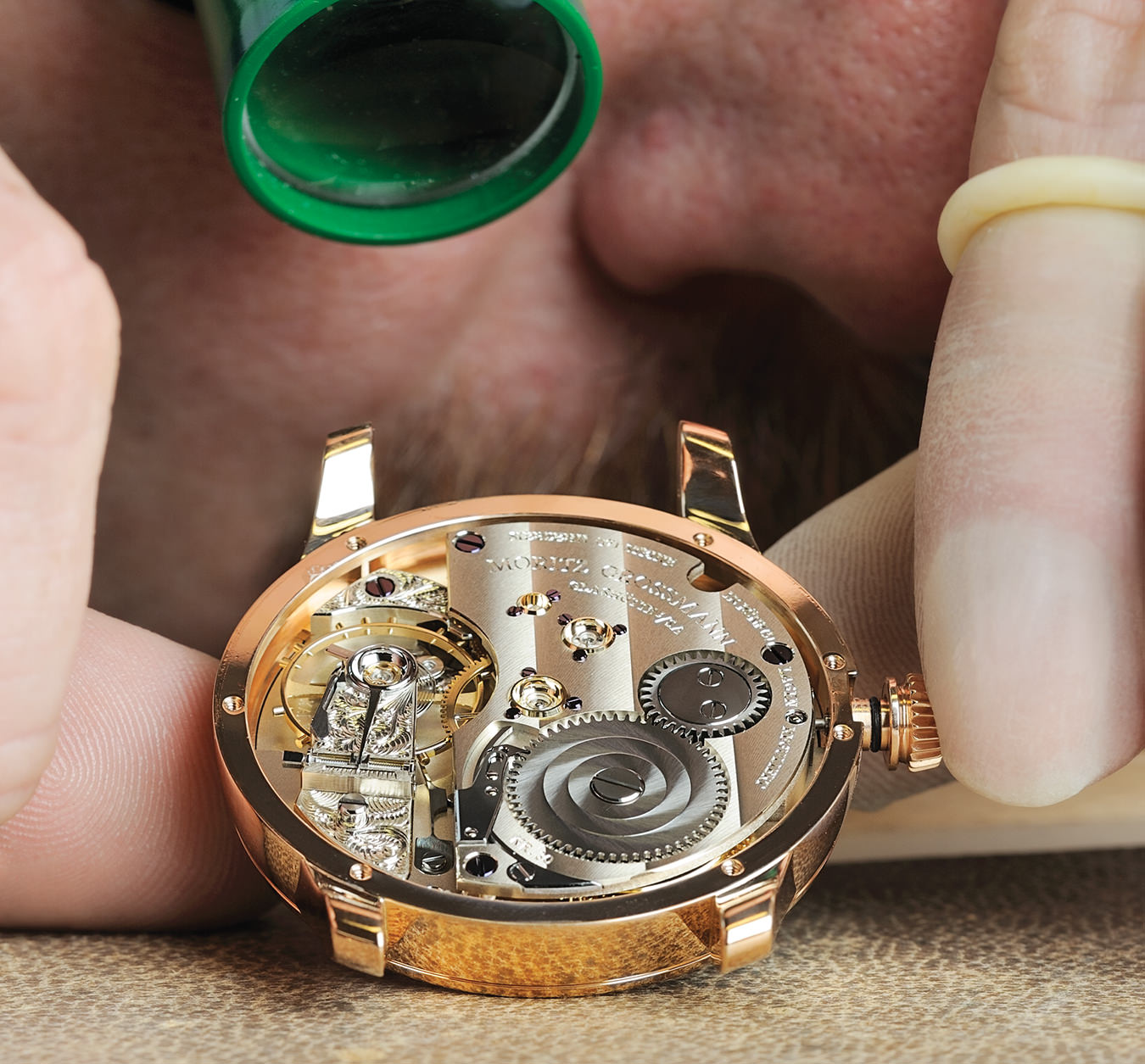
At Moritz Grossmann, 45 highly skilled craftspeople employ time-honoured watchmaking practices.
-
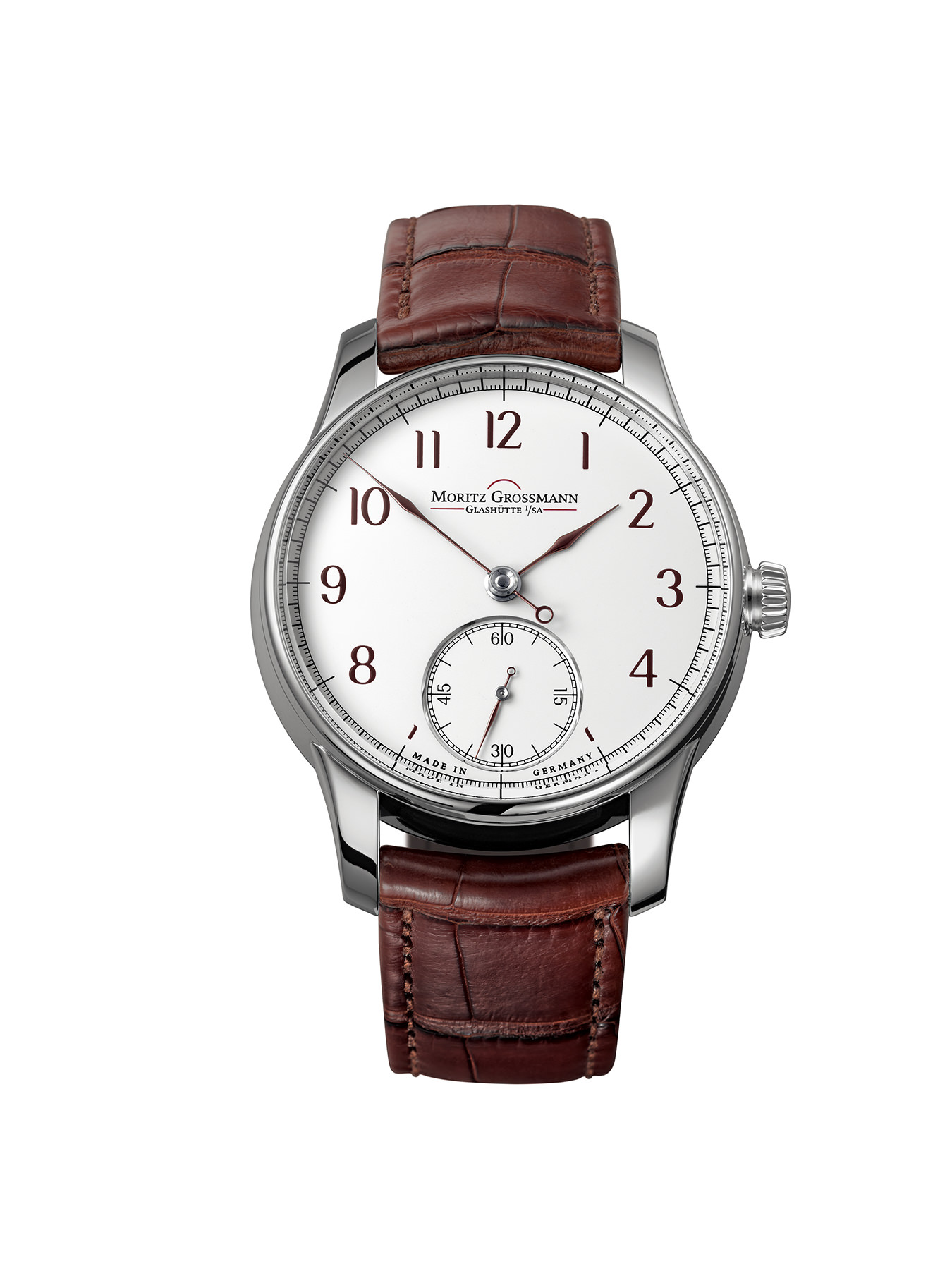
Benu Platinum, limited edition of 25 pieces.
-
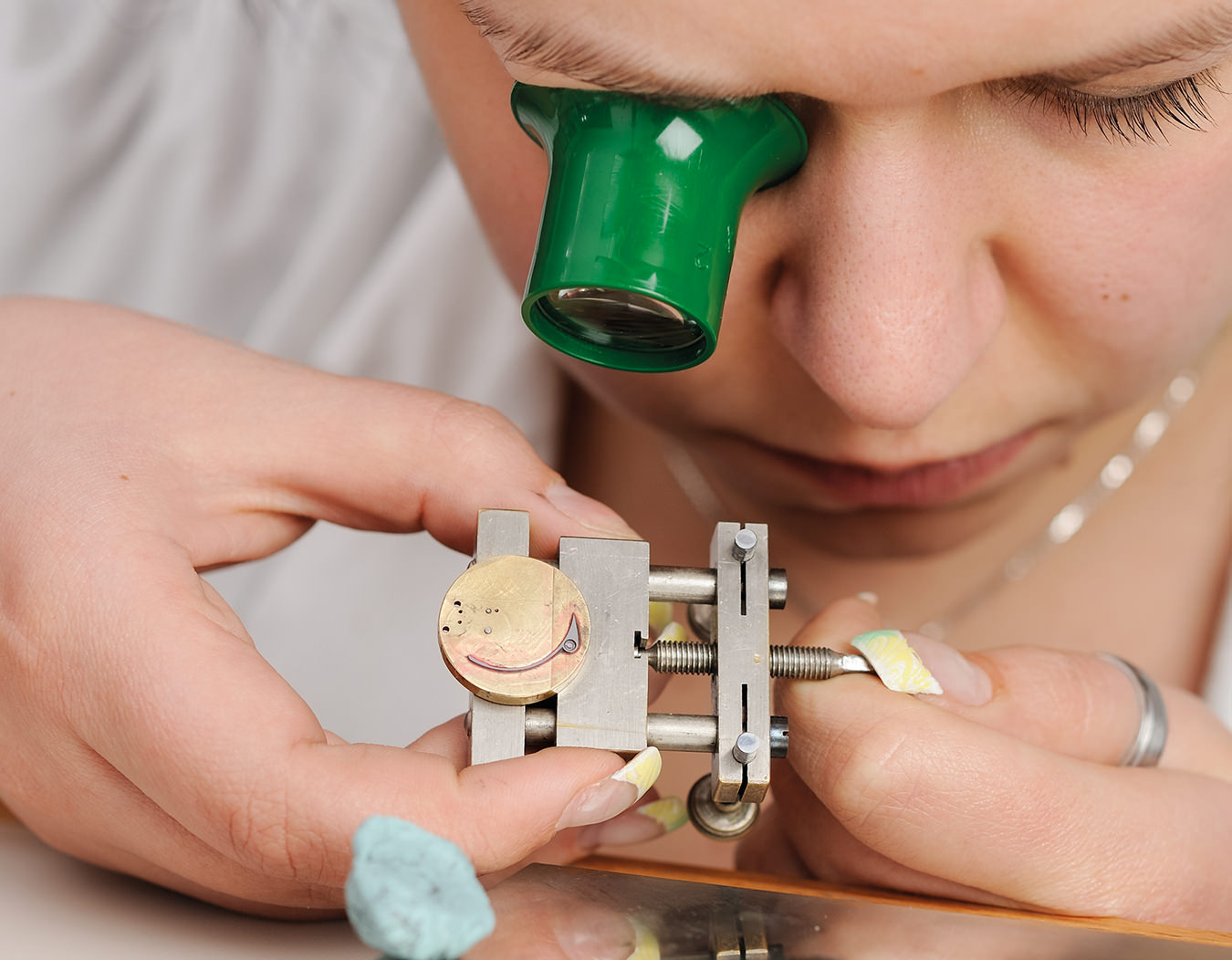
The finishing touches for all parts are applied by hand.
-
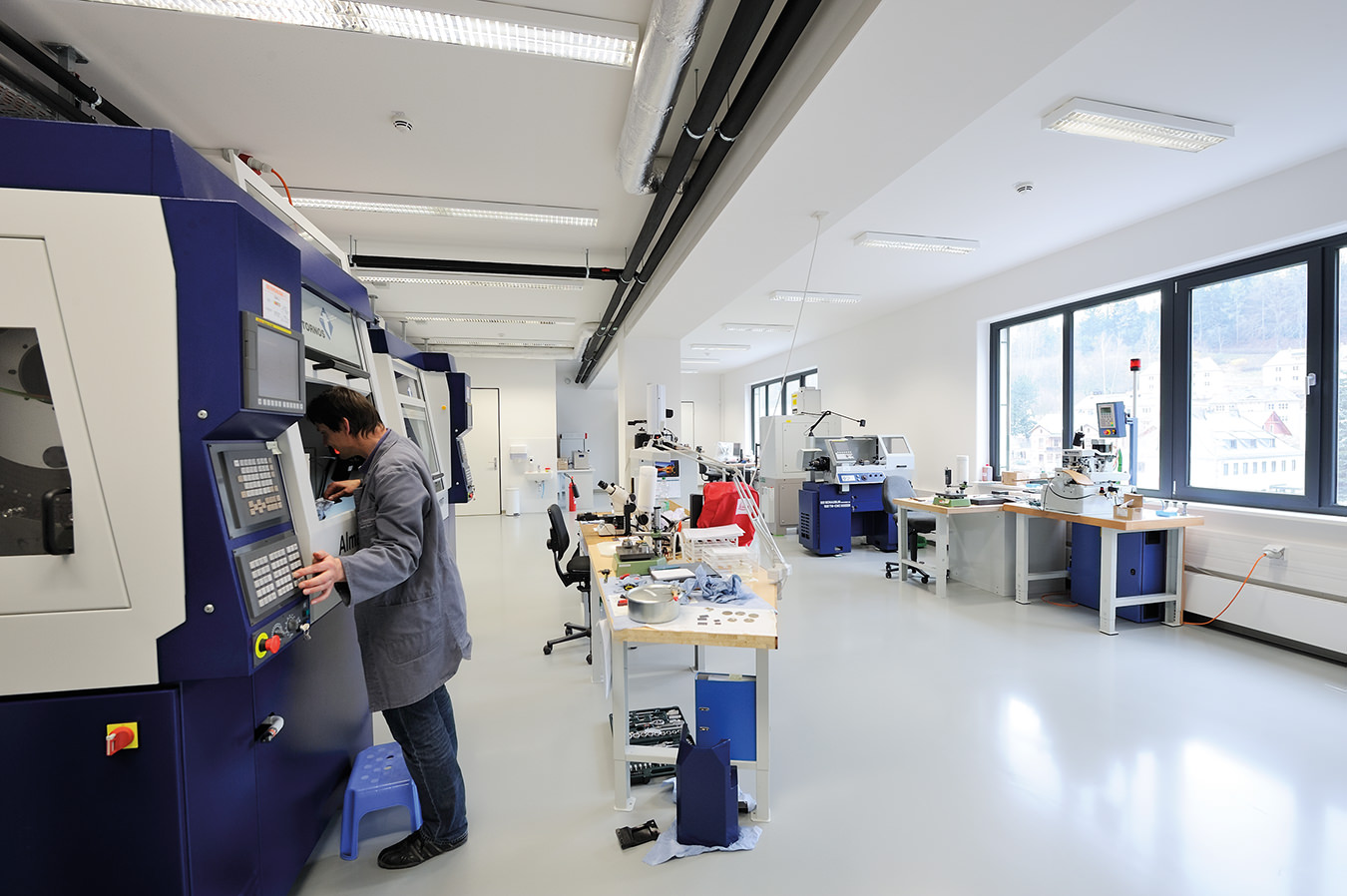
Electronically controlled high-precision machining centres produce raw components to an accuracy of thousandths of a millimetre.
-

A Moritz Grossmann master watchmaker focused on assembly.
-
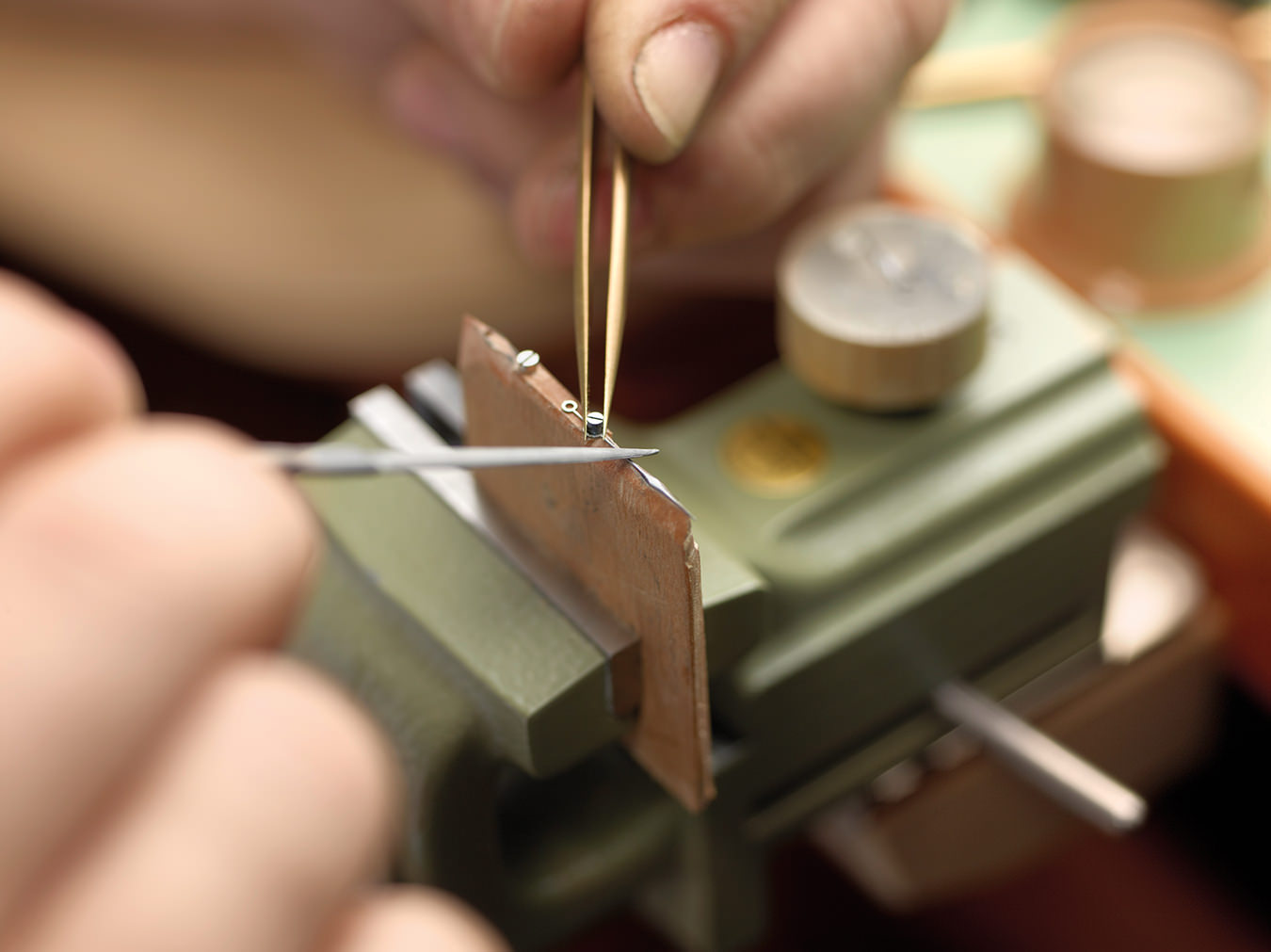
Hand blanks are ground with a diamond file and gradually assume their three-dimensional shape.
Moritz Grossmann Timepieces
Handmade in Germany.

History may not repeat itself with the regularity of clockwork, but watch manufacturer Moritz Grossmann edges it closer to the mark. Christine Hutter, CEO, looked first to the past before founding the modern iteration of the company, which became the newest addition to the German watchmaking mecca of Glashütte in 2008.
The legacy began in 1854, when Carl Moritz Grossmann started up his eponymous watch business. Grossmann was one of the four founding watchmakers of Glashütte, but his company was closed and sold when he died in 1885. Fast-forward 130 years to when Hutter, bringing more than 25 years of watch-industry experience to the table, secured the rights to Grossmann’s name. Today, the refreshed company’s regal manufactory building overlooks Glashütte like a shining beacon.

Here, 45 highly skilled craftspeople employ time-honoured watchmaking practices. Moritz Grossmann’s first watch, the Benu, debuted in 2010, and three more collections have since joined it: the Benu Power, the Benu Tourbillon, and the Atum—all gold-cased manual watches. Innovation is at the forefront of watchmaking, and Moritz Grossmann has a patent pending for the stop-second mechanism in its Benu Tourbillon, created out of a miniscule brush made of human hair.
“The beauty of our brand is visible in the movement, that’s the value. It’s not what you see in the dial, but the movement itself,” says Rainer Kern, director of communications. “Customers buying these watches are going to be experts and collectors—it’s not going to be their first watch.” (Models range from $30,900 to $249,500 [U.S.] per watch.)
Only 200 timepieces will leave Moritz Grossmann’s workshop this year, and future annual targets run between 800 and 1,000, walking a decadent line between business ambition and luxe exclusivity.

